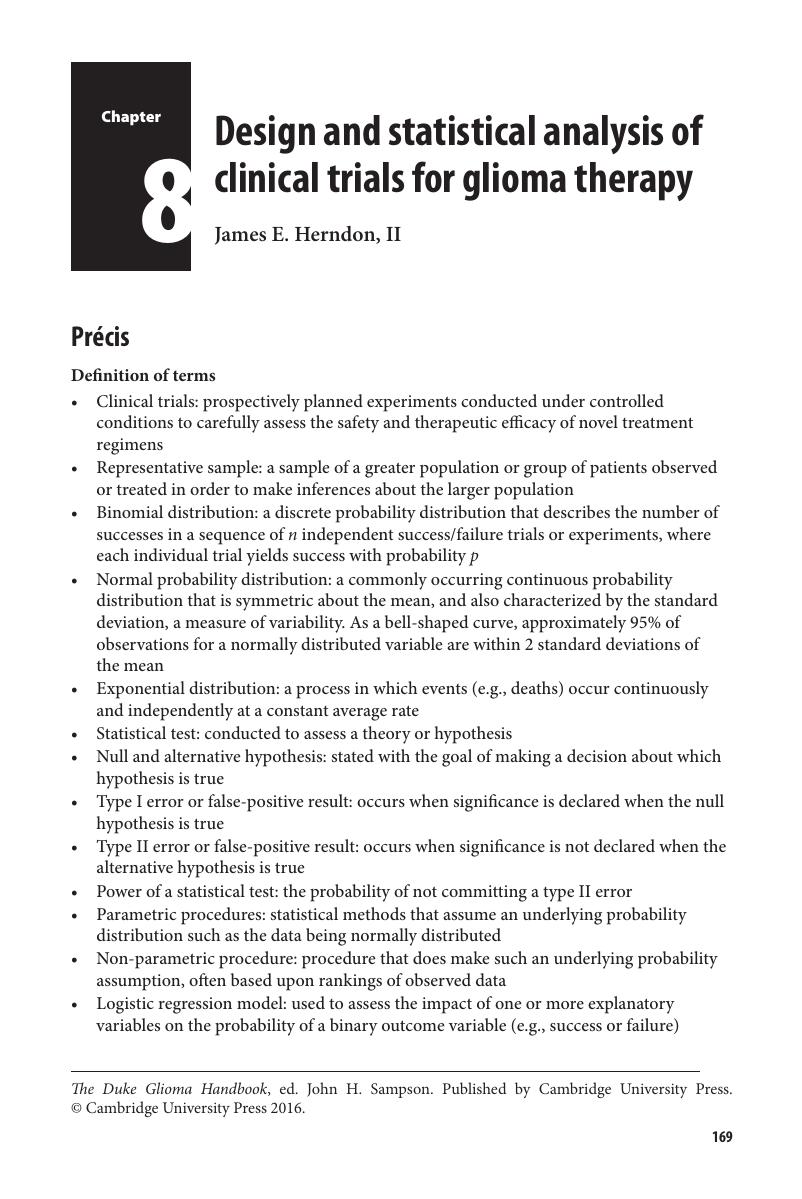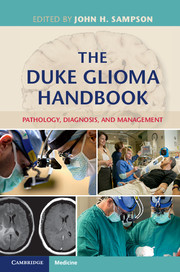Book contents
- The Duke Glioma Handbook
- The Duke Glioma Handbook
- Copyright page
- Contents
- Contributors
- Preface
- Abbreviations
- 1 Genetics of glioma
- 2 Glioma surgery
- 3 Radiation therapy for gliomas
- 4 Chemotherapy for gliomas
- 5 Immunotherapy for gliomas
- 6 Neuroradiology of gliomas
- 7 Neuropathology of gliomas
- 8 Design and statistical analysis of clinical trials for glioma therapy
- 9 Health-related quality of life in glioma patients
- Index
- References
8 - Design and statistical analysis of clinical trials for glioma therapy
Published online by Cambridge University Press: 05 March 2016
- The Duke Glioma Handbook
- The Duke Glioma Handbook
- Copyright page
- Contents
- Contributors
- Preface
- Abbreviations
- 1 Genetics of glioma
- 2 Glioma surgery
- 3 Radiation therapy for gliomas
- 4 Chemotherapy for gliomas
- 5 Immunotherapy for gliomas
- 6 Neuroradiology of gliomas
- 7 Neuropathology of gliomas
- 8 Design and statistical analysis of clinical trials for glioma therapy
- 9 Health-related quality of life in glioma patients
- Index
- References
Summary

- Type
- Chapter
- Information
- The Duke Glioma HandbookPathology, Diagnosis, and Management, pp. 169 - 189Publisher: Cambridge University PressPrint publication year: 2016



